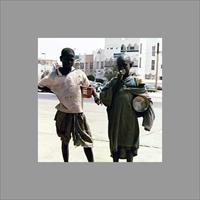Stop child trafficking: one of the main objectives of UNICEF in Guinea Bissau

According to studies carried out in 2003 in Senegal, most of the 120,000 children begging in the street of Dakar (Senegal) were from Guinea Bissau.
To date, child trafficking continues across the very porous border between Senegal and Guinea Bissau. Recent data from the Guinea Bissau border police shows that 104 children have been rescued from the traffickers in recent months, while being smuggled across the border.
UNICEF Bissau is working closely with the government and other partners, providing technical and financial support, to fight child trafficking in Guinea Bissau.
The local NGO SOS Talibe and border police in the east of the country estimate that about 200 children are trafficked every month to Senegal under the pretext of accompanying them to follow religious education. But once in Senegal, the reality turns out to be very different.
“Each child talibe is forced to bring to the teacher 300-500 francs a day,” says one rescued child. “And this is very difficult to do, those who don’t do it are tortured.”
There are also reports that many children from Guinea Bissau are seasonally trafficked to Senegal to work in cotton plantations. In most cases, parents believe that their children will receive a better religious education, but instead they are exploited for their labour.
AMIC, another local NGO involved in family reunification of trafficked children, estimates that approximately 98 per cent of the trafficked children are boys.
UNICEF is providing support to the Government of Guinea Bissau and 80 Border and Immigration Police have recently been trained on human rights principles, international and local legislation and other issues linked to child trafficking, including how to detect and stop child traffickers.
UNICEF is also supporting AMIC and SOS Talibe with institutional reinforcement and equipment, “So that they can more adequately and effectively provide assistance to children who are rescued during the process of family reunification, but to also conduct prevention activities in affected communities”, says Silvia Luciani, UNICEF Representative in Guinea Bissau.
Guinea Bissau has not yet adopted a law against child trafficking, and any progress in this area will have to wait until a new Parliament is elected after the previous one was dissolved in August 2008. UNICEF is also supporting cooperation between the governments of Guinea Bissau and Senegal to better tackle this issue. Progress in this area will resume once a new government is in place after the 16th of November legislative election.
In the beginning of 2009, UNICEF will also work with the Government to conduct an in depth study on child trafficking in Guinea Bissau.
 Back and Next - Back and Next
Back and Next - Back and Next See Also - See Also
See Also - See Also